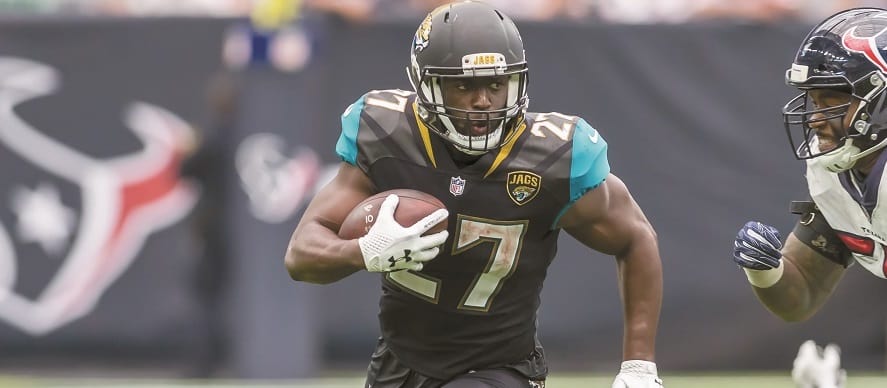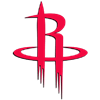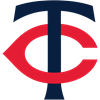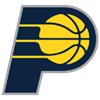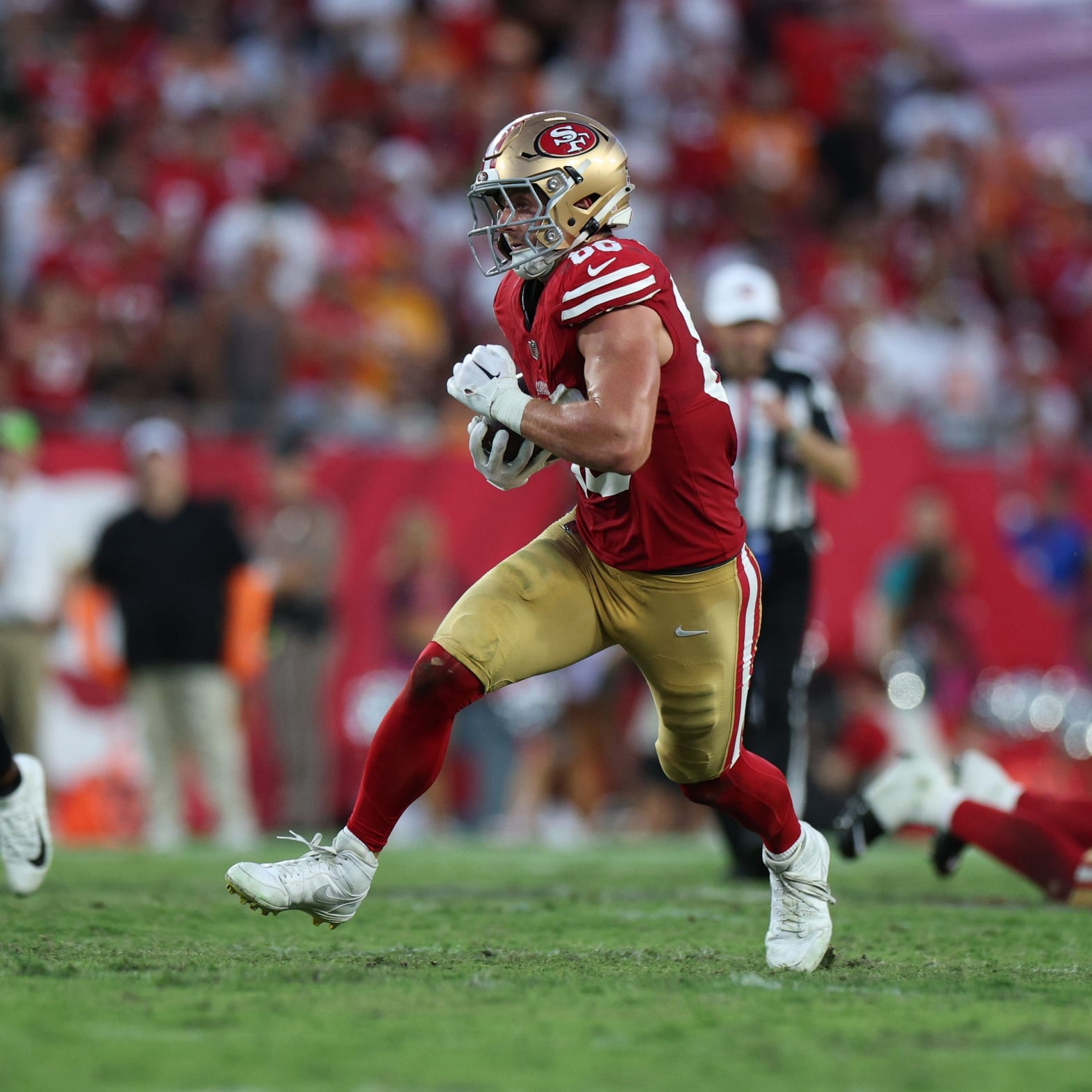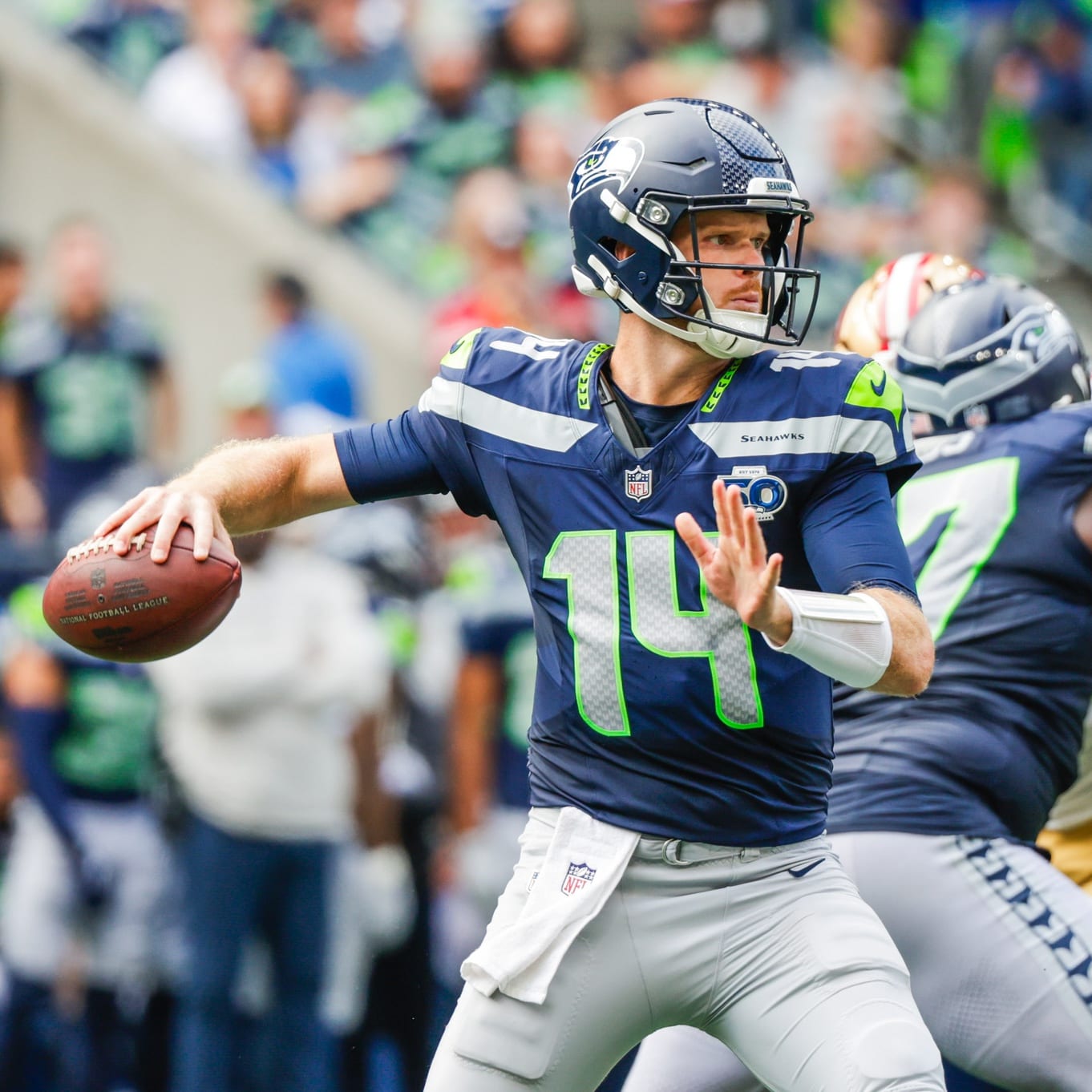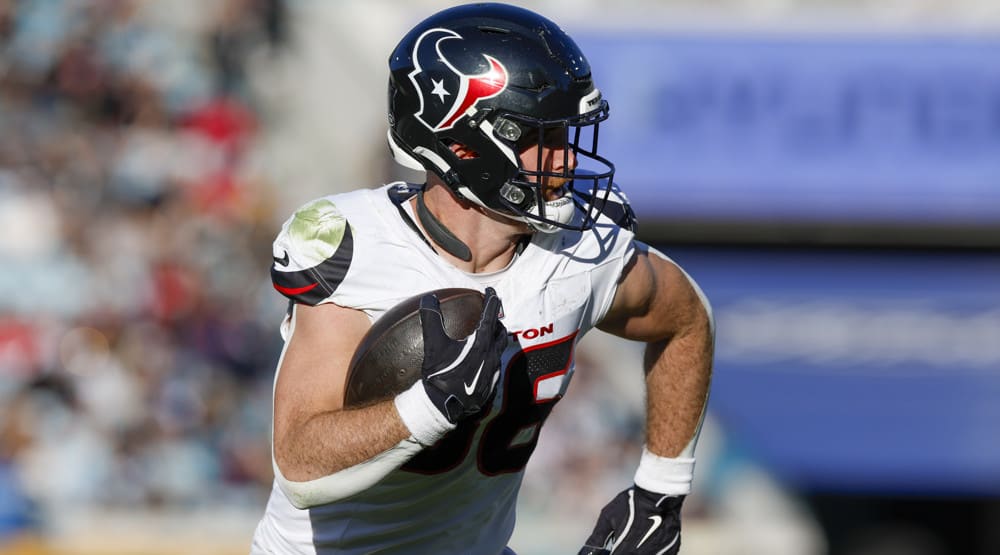This article will look at the day-game Sunday slate each week and break down the matchups contained, looking to identify the DFS utility of the players involved. The dollar figures listed parenthetically next to a player refer to DraftKings and Fanduel prices, respectively.
CAR vs. LAR
Open: 51 O/U, CAR +3
Press time: 50 O/U, CAR +2
Cam Newton (6500 DK, 7900 FD) might not truly be 100 percent healthy, but he might be close since the Panthers didn't even list him on the injury report this week. If Cam is healthy or close to it, his rushing upside alone gives him one of the highest weekly ceilings. With this particular matchup, going against a Rams team with a high scoring standard, any potential escalation in urgency makes Cam that much more likely to tip toward his upside scenarios.
Furthermore, the quality of the Rams defense is up to some amount of question after they allowed 4,851 yards and 33 touchdowns through the air last year, their average fantasy points allowed (21.8) muted largely by 20 interceptions, which is generally difficult to repeat two years in a row. If Newton and the Carolina passing game get going, then we have a pretty good idea of who will benefit. With Devin Funchess and Torrey Smith gone from last year's offense (946 snaps, 110 targets), the receiver production should channel more reliably through Curtis Samuel (4200 DK, 5900 FD) and D.J. Moore (5500 DK, 6200 FD), both of whom are explosive athletes
This article will look at the day-game Sunday slate each week and break down the matchups contained, looking to identify the DFS utility of the players involved. The dollar figures listed parenthetically next to a player refer to DraftKings and Fanduel prices, respectively.
CAR vs. LAR
Open: 51 O/U, CAR +3
Press time: 50 O/U, CAR +2
Cam Newton (6500 DK, 7900 FD) might not truly be 100 percent healthy, but he might be close since the Panthers didn't even list him on the injury report this week. If Cam is healthy or close to it, his rushing upside alone gives him one of the highest weekly ceilings. With this particular matchup, going against a Rams team with a high scoring standard, any potential escalation in urgency makes Cam that much more likely to tip toward his upside scenarios.
Furthermore, the quality of the Rams defense is up to some amount of question after they allowed 4,851 yards and 33 touchdowns through the air last year, their average fantasy points allowed (21.8) muted largely by 20 interceptions, which is generally difficult to repeat two years in a row. If Newton and the Carolina passing game get going, then we have a pretty good idea of who will benefit. With Devin Funchess and Torrey Smith gone from last year's offense (946 snaps, 110 targets), the receiver production should channel more reliably through Curtis Samuel (4200 DK, 5900 FD) and D.J. Moore (5500 DK, 6200 FD), both of whom are explosive athletes whose upsides are worth serious consideration despite the ballhawking threats posed by Aqib Talib and Marcus Peters. Greg Olsen (3200 DK, 5200 FD) turned 34 in March and foot injuries wiped out most of the last two years, but his modest price raises an interesting question of what might happen if Newton has a decent game passing but Samuel and Moore don't, unlikely as that is.
Christian McCaffrey (8800 DK, 8900 FD) is always one of the top weekly fantasy options given his usage and talent, but the matchup might be favorable in this case, too. As much as the Rams were brutally tough against running backs in the passing game last year, allowing a YPT of just 4.6 at a completion rate of 72.2 percent), McCaffrey is arguably an exception relative to any given sample of running back pass-catching outcomes. If so, the upside could be unusually high since the Rams otherwise drew the seventh-highest volume of running back targets last year (126, 7.9 per game). McCaffrey's matchup on the ground seems all clear in any case, as the Rams allowed fourth-most rushing yardage to running backs last year at an average of 4.7 yards per carry.
Todd Gurley (7900 DK, 7600 FD) has substantial upside of his own as long as his knee holds up, and you probably have to like the chances of that better in the early part of the year than the later. The matchup isn't great on paper – Luke Kuechly is a containment threat be it on the ground or through the air – but it's fair to speculate that the Panthers might have an adjustment period if they implement more 3-4 looks on defense. Coach Ron Rivera has some experience running it, but pretty much none of his defensive personnel does. Gurley's upside scenario is in play regardless of the ease of his from-scrimmage functions, because the Rams passing game could pose issues for the Carolina coverage, and if the Rams passing game thrives then Gurley should see more of his usage occur within scoring range.
Jared Goff (6200 DK, 7800 FD) will need to account for what should be an improved Carolina pass rush, especially thanks to the arrival of first-round pick edge defender Brian Burns and long-time All-Pro tackle Gerald McCoy. If he can, though, then corner James Bradberry strikes me as vulnerable to each of the Rams' top three receivers – Brandin Cooks (6500 DK, 7000 FD), Robert Woods (6400 DK, 7000 FD), and Cooper Kupp (5700 DK, 6800 FD) – though opposite corner Donte Jackson at least has the speed to run with Cooks.
PHI vs. WAS
Open: 46.5 O/U, PHI -8
Press time: 44.5 O/U, PHI -10
Derrius Guice (4400 DK, 5900 FD) has evidently emerged from the offseason as Washington's clear lead runner, which is exactly what you would assume if his health were guaranteed. Perhaps it is, and perhaps we can go forward assuming Guice will lay claim to the majority of Washington's rushing production from this point. The surrounding offense, the matchup, and the game script all appear to be against Guice in this case, however. His upside in an upset scenario makes him a justifiable tournament pick and you're probably glad to start him as a flex play in season-long leagues, but his blocking might be poor, his carries might be far from scoring range, and his carry count might be muted in a setting like this. Particularly if that last concern comes true, then Chris Thompson (3500 DK, 5100 FD) might be worth consideration as a flex punt in PPR scoring.
Case Keenum (4900 DK, 6200 FD) is scary outside of two-QB leagues, as he might have little help against a strong defense anchored by an intimidating pass rush. With Jordan Reed (concussion) looking highly questionable, it's difficult to see the upside in what could be a weak Washington passing game with an unclear hierarchy of pass catchers.
Carson Wentz (5700 DK, 7600 FD) should have a big season with an improved bill of health and surrounding cast both, though the urgency and the matchup for this game don't seem like one of his better ones. Washington doesn't pose a convincing threat, so there might not be a need to bring out all the artillery for Wentz and company, especially with an intimidating Washington pass rush to account for. But if the Eagles do need Wentz to throw, he'd be a good bet to produce. The Eagles tight ends should pose problematic matchups for the Washington defense, and DeSean Jackson (4500 DK, 5600 FD) has the revenge game narrative going for him. Alshon Jeffery (5900 DK, 6700 FD) is expected to play despite a biceps injury in Thursday's practice.
If the spread on this game is sound, then it might be the Philadelphia rushing attack that leads the offense. Miles Sanders (3900 DK, 6000 FD) is awfully affordable, especially in the DraftKings case, for a potential lead runner on a team this heavily favored. Jordan Howard (4200 DK, 5800 FD) may be the better value between the two on FanDuel, where his lower price and 0.5PPR scoring make him an easier fit. Whichever of the two has the higher upside is probably the one who gets the most scoring opportunity, and I don't know how we can project that at the moment.
NYJ vs. BUF
Open: 38.5 O/U, NYJ -3.5
Press time: 40.5 O/U, NYJ -2.5
Sam Darnold (5100 DK, 6700 FD) is a candidate to take a big step forward in his second season, thanks in part to an improved supporting cast, but he'll have easier matchups than this one. Sean McDermott is a good defensive coach, and the Bills allowed the fewest fantasy points per game (16.2) to opposing quarterbacks last year. Robby Anderson (5200 DK, 6300 FD) might draw Buffalo's best corner in Tre'Davious White, but Anderson caught four of seven targets for 76 yards and a touchdown in his one game against Buffalo last year. It's worth mentioning that he's playing through a calf tweak, however. I'm quite interested in Jamison Crowder (4100 DK, 5300 FD), especially on DraftKings, because I think he's a good player and I figure the coverage is lighter in his part of the field than in that of Anderson or Quincy Enunwa (3800 DK, 5200 FD), though both are significant talents.
Le'Veon Bell (7100 DK, 7900 FD) would like a fast start to justify his new contract, and his price is more affordable than where he left off with Pittsburgh. There's further intrigue in the fact that the Bills were tied for allowing the eighth-most fantasy points to running backs last year. I'd guess they'll be improved in 2019, though, with Tremaine Edmunds in his second year and the monstrous Ed Oliver added on the defensive line.
Whereas Bell is the clear lead contributor in the Jets backfield, the running game with Buffalo is wide open in light of LeSean McCoy's release. Rookie third-round pick Devin Singletary (3600 DK, 5300 FD) will be re-priced next week, as might Frank Gore (3800 DK, 4900 FD) and T.J. Yeldon (3300 DK, 4600 FD), so the price indicates short-term opportunity despite the complete lack of clarity on their roles. Still, Singletary and Yeldon strike me as worthwhile flex punts in DraftKings tournaments.
Josh Allen (5600 DK, 6900 FD) could just as easily lead the team in rushing as any of the running backs, and he already demonstrated his tournament upside in several games as a rookie last year. The Jets, meanwhile, have dubious defensive personnel and even more dubious coaching with the arrival of defensive coordinator Gregg Williams. Gregg's defense allowed Lamar Jackson to run for 90 yards and two touchdowns in Week 17 last year, so perhaps Allen can find some cracks in the containment. If Allen can get going as a passer then the top candidate to produce is likely John Brown (4300 DK, 5500 FD), who offers big-play upside but probably with a low floor and capped volume upside even in the best-case matchups. Cole Beasley (3600 DK, 4800 FD) and Zay Jones (3700 DK, 5000 FD) will also be involved, but the low-floor, low-ceiling concern applies even more to them than it does to Brown.
MIN vs. ATL
Open: 47.5 O/U, MIN -4
Press time: 47 O/U, MIN -4
I plan to target this game a fair amount, as the playoff ambitions of both teams could boost the urgency levels of their otherwise already competent offenses. The Minnesota defense should bounce back this year, but the Atlanta one remains unproven, and the Falcons offense is so imposing that they offer interesting tournament upside at the very least, even with the worse matchup between the two offenses.
Matt Ryan (6100 DK, 8000 FD) is good enough to beat this Minnesota defense, especially if the game plan is aggressive, but his price and matchup should mute his ownership levels. If you do go with Ryan in a tournament then you might as well stack him with any of his obvious pass catcher candidates: Julio Jones (8000 DK, 8500 FD), Calvin Ridley (5100 DK, 6500 FD), Mohamed Sanu (4600 DK, 5300 FD), and Austin Hooper (3200 DK, 5500 FD). The matchup isn't good for any of them, but if Ryan goes then they're all candidates to go with.
Devonta Freeman (5300 DK, 6700 FD) is a good player who should enjoy a bounce-back season in 2019, perhaps as soon as this contest. The Vikings were tough against opposing running backs even in 2018's down year, however, conceding just 4.08 yards per carry and a catch rate of 73.1 percent at just 6.2 YPA. Unless he goes Hulk, Freeman might need a bad game from Kirk Cousins to get the volume and scoring opportunities necessary for an upside scenario.
By some contrast, it's a golden matchup and script alike for Dalvin Cook (6000 DK, 7400 FD), whose function as a runner and receiver both present tremendous upside. The Vikings have a narrow usage tree given the absence of a third receiver, second running back, or high-volume tight end, so if the Vikings put up points then the odds are very good that Cook played a crucial role in the outcome. He'll be chalky, but I'll have hard time staying away.
Kirk Cousins (5500 DK, 7400 FD) is one of my favorite quarterback targets on DraftKings, and I think he stacks just fine with any combination of Cook, Adam Thielen (6800 DK, 7400 FD), and Stefon Diggs (6700 DK, 7200 FD), though Diggs is playing through what appears to be a manageable hamstring tweak. I'm very high on Thielen in particular, as I often am. Kyle Rudolph (3300 DK, 5100 FD) is probably worth more consideration than usual, too, both because of the game script and the off chance that Diggs is limited by his hamstring issue.
MIA vs. BAL
Open: 37 O/U, MIA +4
Press time: 39.5 O/U, MIA +6.5
The Dolphins are hopeless to the point that it's really difficult to entertain any particular good-case scenario, but Albert Wilson (3900 DK, 5000 FD) could be busy in light of the Kenny Stills trade. Wilson is expected to serve as Miami's lead slot receiver, where the coverage is easier than what DeVante Parker (3900 DK, 5300 FD) figures to see outside.
The Baltimore side, by contrast, has several interesting options. Lamar Jackson (6000 DK, 7400 FD) might have an incentive to put on a show in Miami, which is very close to his hometown. There might be more Lamar Jackson fans than Dolphins fans at this point in the Miami area (just kidding, maybe). The Dolphins have a substantial amount of talent in their secondary, but the rushing upside is what provides Jackson's high-scoring potential, and the front seven might be brutal for the Dolphins.
Aside from Jackson, any or all of the Baltimore running backs should find the sledding easy in this one. Mark Ingram (5100 DK, 6600 FD) is an enticing tournament consideration against a Miami run defense that might be bad at its best, and might be the worst at its likely impending level of demoralization. The risk with Ingram is that he might not get a big workload if the game proves non-competitive, and there's also risk in the fact that Gus Edwards (3100 DK, 4800 FD) and Justice Hill (3600 DK, 5000 FD) could easily get hot hands in this one, too. Edwards has a revenge angle in this one, as he originally played at Miami in college before he more or less got run out of town and had to transfer to Rutgers.
JAC vs. KC
Open: 52.5 O/U, JAC +4.5
Press time: 50.5 JAC +3.5
This matchup offers plenty of explosiveness and risk both, as the Chiefs are on the road in an unusually hot environment where the Jaguars defense is a candidate for a bounce-back season, thanks in part to the arrival of the imposing pass rush potential of seventh overall pick Josh Allen. Patrick Mahomes (7200 DK, 8700 FD) struggled a bit against the Jaguars last year, completing 22-of-38 passes for 313 yards and two interceptions, but his rushing touchdown in the same game is a good reminder that he isn't just a passing threat – he can do additional damage on the ground.
If Mahomes has a good game as a passer, then it likely means a big game for at least one of Tyreek Hill (7600 DK, 7600 FD) or Travis Kelce (7100 DK, 7800 FD). Hill caught four of seven targets for 61 yards last year, adding 26 more yards on the ground, while Kelce caught five of eight targets for 100 yards. Sammy Watkins (5000 DK, 6300 FD) has a lower profile, but he shouldn't be ignored after a highly efficient debut season with the Chiefs, including six catches for 78 yards on eight targets against the Jaguars.
Despite how intimidating the Jacksonville pass defense might be, the greatest amount of risk yet for the Chiefs offense is in the backfield, where Damien Williams (6300 DK, 6900 FD) will need to hold off LeSean McCoy (4600 DK, 5800 FD) and Darwin Thompson (3000 DK, 4500 FD) in a tough matchup. There's a case for any of the three in tournament lineups given the firepower of the Chiefs offense generally, but very little is assured.
For the Jacksonville offense the risk comes in the form of a knee injury to left tackle Cam Robinson, who will likely sit out as the Chiefs debut defensive end Frank Clark, a pass rusher to be feared. Nick Foles (5300 DK, 6500 FD) isn't running away from anyone, so the Jaguars need to successfully account for Clark and defensive tackle Chris Jones, who posted 15.5 sacks last year. If Foles does have time, though, he just might be able to spring a big game for Dede Westbrook (4800 DK, 5900 FD), who might see his most urgent game script of the season in this matchup. It's unclear how the Jaguars will utilize D.J. Chark, Chris Conley, or Marqise Lee after Westbrook, but Lee (4400 DK, 5000 FD) has the prospect profile to not only lay claim to the WR2 role, but maybe even match Westbrook's pace at times. The problem with Lee is that, while he's expected to play, it's not clear what sort of workload he might receive as he returns from last year's season-ending knee injury, for which he opened training camp on the PUP list. Geoff Swaim (2900 DK) offers no explosiveness but might get a handful of catches at a low price.
Leonard Fournette (6100 DK, 7200 FD) might be an all-in player for me this week, as the public simply doesn't appreciate his talent sufficiently and the matchup strikes me as high-upside both on the ground and through the air for Fournette. The backup running backs might not combine for 10 snaps in this game with Alfred Blue on IR, so Fournette's underrated talent could see an unusual workload spike against a defense that isn't suited to stop him. The Chiefs run defense was awful last year, and the run-stopping personnel didn't change enough to project substantial improvement. Anthony Hitchens has a big bullseye on them after the Chiefs allowed 5.0 yards per carry to opposing backs last year as well as 7.4 YPT at a 79.8-percent completion rate.
CLE vs. TEN
Open: 45.5 O/U, CLE -5
Press time: 45 O/U, CLE -5.5
It's tough to get excited about the Tennessee offense as it faces an intimidating Cleveland front seven, and without left tackle Taylor Lewan (suspension). Guard Kevin Pamphile (knee) was out of practice all week, too.
Corey Davis (4900 DK, 6200 FD) and Derrick Henry (5900 DK, 6800 FD) should see substantial shares of the pass and run game, respectively, but the pie might be small enough in both cases that it might not matter much. If the pie is bigger than expected, though, then either has an upside scenario of considerable scale. It just seems so unlikely between the offense's deliberately low tempo, the uncertain quarterback play of Marcus Mariota, and the almost certain struggles of the offensive line. Delanie Walker (3500 DK, 5400 FD) is another affordable Titan who could see substantial relative usage for the price, but expect the Cleveland defense to defend tight ends better this year after allowing 100 receptions to them under Gregg Williams in 2018. New defensive coordinator Steve Wilks' Arizona defense was rather stingy against tight ends last year, by contrast.
The Browns are a clear favorite for several good reasons in addition to their strong defense, and the headlining distinction between these teams is the passing threat posed by Baker Mayfield (6400 DK, 7900 FD). Mayfield's prowess and inclination as a downfield passer portends big plays, often of the touchdown sort, and that's especially true in light of the addition of Odell Beckham (8100 DK, 8200 FD), who should be fine despite managing a training camp hip tweak. The issue for both Mayfield and Beckham is that their prices are plenty high, yet in this matchup they face both a solid defense, and an opposing offense that moves slowly at an unusually high run rate. That means the clock can run out faster than expected, clamping down on the opportunity for the upside scenario. They're of course defensible tournament picks – if the Titans pose an unexpected script to the game, then Mayfield and Beckham can go nuts against better defenses than this one.
David Njoku (3700 DK, 5800 FD) is a more affordable way to take a stab at Mayfield's touchdown upside, and the potential yardage limitation matters less at tight end than receiver or flex. Jarvis Landry (5600 DK, 6300 FD) should be plenty busy as well, but for upside he's either dependent on reception volume that likely isn't there, or touchdown production he's less likely to provide than Beckham or Njoku. I wouldn't be surprised if Landry is more or less matched this year by Rashard Higgins (3200 DK, 4500 FD), whose minimal cost makes him easier to roster.
Nick Chubb is the most solid bet on the Cleveland offense, and if the Titans offense struggles badly enough then Chubb could indeed be among the top scorers this week. For as much as the Titans defense is competent, Chubb is a dominant talent capable of overruling many matchup considerations, and that Tennessee defense might have to stop him multiple times on a short field. Perhaps big yardage from scrimmage isn't likely for Chubb, but he's probably among the slate's best multi-touchdown candidates.
SEA vs. CIN
Open: 43.5 O/U, SEA -8
Press time: 44.5 O/U, SEA -9.5
The Bengals appear hopeless in this one, down not just star wideout A.J. Green (ankle), but starting tackles Jonah Williams (shoulder) and Cordy Glenn (concussion). Going to Seattle, where the Seahawks are now armed with Jadeveon Clowney, this one could get ugly early and stay that way.
The blowout potential shouldn't scare you away from Chris Carson (5700 DK, 6600 FD), who might (for good reason) be the chalkiest player on the slate. The Bengals allowed 5.0 yards per carry to running backs last year while conceding an 80.9 percent catch rate at 7.7 YPT, and Seattle's comically run-heavy offense means that, even if it's a blowout where Carson rests in the second half, if it became a blowout in the first place it would likely dictate a big game for Carson to get to that point. With that said, I love Rashaad Penny (4900 DK, 5900 FD) as a tournament play, both because he's affordable and because I think the ownership disparity between Penny and Carson might exceed the actual probability that Carson posts the bigger numbers, especially if it turns into a laugher early on.
D.K. Metcalf (4000 DK, 5500 FD) and Jaron Brown (3100 DK, 4500 FD) should play through their knee and toe issues, respectively, though their floors are exceedingly low in a game where Russell Wilson (6300 DK, 8200 FD) could throw 20 or fewer passes – he did as much three times last year. Of course, he also threw seven touchdowns on those 54 attempts, and all it takes is one for Brown in particular to pay off. It's also possible that Tyler Lockett (6000 DK, 6800 FD) simply won't share with his fellow receivers, and in the unlikely case that the Bengals make a game of it, that would trigger a shrieking upside scenario for Lockett, who's a compelling tournament play if not a worthwhile one in cash games.
It's a concerning matchup for Joe Mixon (6700 DK, 7800 FD), especially in the game script sense. With the Bengals just giving a well-paid extension to Gio Bernard, it's easy to imagine a workload split that proves problematic for Mixon's acquisition price, and the Bengals might otherwise need to abandon the run early on. There's still a way for Mixon to make an impact, though, especially if the Seahawks haven't improved at stopping opposing backs in the passing game – they allowed 7.3 YPT at a completion percentage of 78.3 last year.
Andy Dalton has a brutal matchup given his offensive line injuries, though there might be some sort of garbage time potential if the Seahawks call off the attack with a lead. Tyler Boyd (5800 DK, 6900 FD) would be the heavy favorite to claim most of Dalton's production, so it's something to think about in tournaments, especially in DraftKings' PPR scoring. John Ross (3900 DK, 5400 FD) might be worth a consideration in a tournament setting, too – he's been practicing all week, and he's the kind of small, fast receiver that the big, grabby Seattle corners generally don't want to see. It's also a homecoming game for Ross!
LAC vs. IND
Open: 47.5 O/U, LAC -3
Press time: 44.5 O/U, LAC -6.5
Philip Rivers (5900 DK, 7500 FD) might have to pick up some of the slack in light of Melvin Gordon's absence, and as he goes so should Keenan Allen (7300 DK, 7700 FD), whose target volume is all but assured now that the Chargers are without their former leader from scrimmage. There's some concern with the Chargers offensive line as it matches up with a Matt Eberflus defense that suddenly boasts numerous disruptive threats, but such a problem might hint more at limitations for Mike Williams (5300 DK, 6400 FD) and Hunter Henry (3900 DK, 6100 FD), though Henry's price is so low on DraftKings that he almost has to be a standout tournament option if nothing else.
Both Chargers running backs of note should see good usage relative to their prices, and Austin Ekeler (5500 DK, 6400 FD) especially has posted convincingly strong NFL production to this point. Justin Jackson (4000 DK, 5900 FD) can't be ignored, though, because Ekeler likely has a usage cap at around just 5-foot-9, 200 pounds with a recent history of injury. Both running backs are candidates for substantial functions in the passing game.
Jacoby Brissett (4400 DK, 6000 FD) will likely be far better than he was in 2017, and his price is temptingly low this week. But I doubt he has the upside to make his risk worthwhile, especially against a Chargers secondary that still intimidates even in the absence of All-Pro safety Derwin James. Devin Funchess, Parris Campbell, and Chester Rogers all carry perilously low floors, but even the good Chargers corners can't run with someone like T.Y. Hilton (6600 DK, 7700 FD). The problem with Hilton is that his DFS pricing was based on the assumption that Andrew Luck would be the quarterback. It seems like a general reason to stay away. There are tight end options who are cheaper than Eric Ebron and Jack Doyle on both sites who nonetheless offer higher floors and ceilings both.
The one part of the Colts offense that interests me in DFS is Marlon Mack (5600 DK, 6900 FD), who might be worth tournament consideration given Indianapolis' major offensive line advantage in this game. Mack's floor is low perhaps, but if the Colts pass rush can get to Rivers a bit, then Mack might find himself busy and in favorable field position.
TB vs. SF
Open: 49 O/U, TB -1
Press time: 51 O/U, TB -1
Jameis Winston (6600 DK, 7500 FD) will need to drive a Tampa Bay offense with a weak rushing attack, and in this potentially uptempo setting he holds significant upside. The floor might be low all the same, because the Tampa Bay offensive line is a question mark and the 49ers have a few dangerous players in the front seven, highlighted by DeForest Buckner and Nick Bosa (ankle). There's an additional bit of concern due to Mike Evans (7900 DK, 7900 FD) missing Friday's practice with an illness, though he's supposed to be fine. Given Evans' status and their cheaper prices otherwise, Chris Godwin (6200 DK, 6900 FD) and O.J. Howard (5000 DK, 6500 FD) are probably the Tampa Bay pass catchers most easily rostered in this one.
Peyton Barber and Ronald Jones may lead the Tampa backfield, especially in terms of rushing function, but their ceilings and floors alike are dangerously low, so I wouldn't bother with any Tampa running back other than maybe a look at passing-down specialist Dare Ogunbowale (3000 DK, 4500 FD) in a tournament.
The matchup is a great one for the San Francisco passing game, though its success is dependent on the play of Jimmy Garoppolo (5800 DK, 7200 FD), who's a candidate for a slow start as he makes his return from last year's ACL tear. If Garoppolo can go, then you have to like the tournament appeal of Dante Pettis (5400 DK, 6500 FD) and Marquise Goodwin (4000 DK, 5400 FD) against a questionable Tampa secondary. George Kittle (6600 DK, 7300 FD), by some contrast, is capable of a big game even if Garoppolo struggles.
The 49ers backfield is maybe the most interesting question heading into this game, as both Tevin Coleman (5000 DK, 6300 FD) and Matt Breida (4000 DK, 5300 FD) are big-play backs with the ability to provide major pass-catching contributions. If Garoppolo is struggling to hit his downfield targets, then it might be the gain of one or both of these running backs, both of whom strike me as strong tournament options.
DAL vs. NYG
Open: 46.5 O/U, DAL -7.5
Press time: 45.5 O/U, DAL -7
Sterling Shepard (5000 DK, 6000 FD) is ready to go despite his preseason thumb issue, and he could see elevated slot snaps while Golden Tate is suspended. That would be good for Shepard's interests, because while Eli Manning can miss a barn at almost any distance, his faint chance of accuracy increases as the target depth decreases. Evan Engram (4800 DK, 6400 FD) should be the other leading route runner for the Giants, and often in the slot opposite Shepard. Engram zapped Dallas in both games last year, catching seven passes for 67 yards and a score in one, with five catches for 81 yards and a touchdown in the other. Engram's DraftKings price is pretty tempting in particular.
Dallas was tough against the run last year, holding running backs to eighth-fewest fantasy points and just 3.8 yards per carry, yet Saquon Barkley (9000 DK, 9200 FD) still averaged 4.9 yards per carry in the two games against them. The Cowboys struggled to stop running backs through the air last year, furthermore, conceding 7.4 yards per target at a completion rate of 81.3 percent, so Barkley doesn't even need to prove an exception to produce in that capacity. Indeed, Barkley arguably carries the highest target projection in this game for either team after turning 24 targets into 18 catches for 113 yards in two games against Dallas last year.
Dak Prescott (5900 DK, 7500 FD) struggled against the Giants in their first showdown last year, but in the Week 17 rematch Prescott went wild for 387 yards (8.8 YPA) and four touchdowns, the second game coinciding with a strong finish perhaps propelled by the acquisition of Amari Cooper (7000 DK, 7500 FD). That Cooper is playing through plantar fasciitis to an unknowable effect casts uncertainty over both Cooper and Prescott. Perhaps Cooper will be healthy enough to pose his customary threat, perhaps not. If Cooper is limited in any way, then Michael Gallup (4300 DK, 5600 FD) might be able to step up, but in the meantime it's difficult to know for sure what role awaits Randall Cobb (4200 DK, 5000 FD).
Ezekiel Elliott (9200 DK, 9100 FD) might face a workload limitation to the tune of 20-to-25 snaps, and even if not, his absence from training camp invites the possibility of low-quality reps for whatever volume they might occur. You're almost certainly rolling with him in season-long leagues and I don't see why anyone would argue against him as a tournament play in DFS, but I'll abstain.
ARZ vs. DET
Open: 48.5 O/U, ARZ PK
Press time: 46 O/U, ARZ +2.5
The Arizona cornerback rotation is almost certainly one of the very worst in the league at the moment – it might have been below average even before the suspension of Patrick Peterson and injury suffered by Robert Alford. Arizona is down their top two corners, and now they get to cover Kenny Golladay (6300 DK, 6900 FD) and Marvin Jones (4800 DK, 6100 FD). Jones is no worse than average as a starter, and Golladay could establish himself as one of the top NFL receivers this year. If that's true, and if it's true that this is likely Golladay's best matchup of the season, then it strikes me as an obvious DFS target this week.
The way Golladay or/and Jones disappoint is if the Arizona offense struggles and the Lions play with no urgency, in which case Golladay's interests might be at odds with those of Kerryon Johnson (5800 DK, 7000 FD) and, if the game gets out of hand, C.J. Anderson (3900 DK, 5300 FD). The cutdown waiver claim on J.D. McKissic is immaterial to me as it relates to Johnson, so I think Johnson has a golden matchup just like Golladay and Jones do. Even if Johnson has a big game, it won't necessarily prove a meaningful inhibitor to Golladay or/and Jones hitting the outcomes their investors need. The same is true of T.J. Hockenson (3100 DK, 4900 FD), who carries objective risk but also objective upside at a punt price.
The best-case scenario for this game is one where the Arizona offense thrives, in which case they would likely thrive at a high tempo, forcing the Lions offense to play at an unusually high tempo in response. Matthew Stafford (5400 DK, 6600 FD) is one of my favorite plays this week, because this particular scenario could result in him producing as the QB1 even as a further Detroit stack offers great affordability, not only in reference to the previously mentioned Detroit players, but maybe even Danny Amendola (3600 DK, 4900 FD). The more middle-range outcome is one where the Lions play well on offense but play with low urgency and tempo because the Cardinals offense can't force the issue.
Kyler Murray (5600 DK, 7300 FD) is a total unknown in this matchup, his range of outcomes greater than any other quarterback this week. He could finish at the QB1, or he could finish worst among starters. The cumulative unknown between himself, his scheme, his supporting cast, and his head coach is such that truly nothing can be taken for granted. But we know that the theory of the Air Raid dictates that, if Murray should prove successful in this game, he might prove very successful, because success in the Air Raid begets more aggression from the Air Raid, and the resulting escalation in the pace forces the other team to match pace to keep up, begetting more aggression from everyone. His tournament utility is objectively clear in the sense of the point upside, and it's possible that he further might have advantageously low tournament ownership after a sloppy preseason.
If Murray doesn't go, the rest of the Arizona offense might get stuck with him. The usage share seems assured for David Johnson (7700 DK, 8100 FD), but it won't help his owners any if he has a big share of a dead offense. Furthermore, the Arizona offensive line is liable to get overwhelmed by any defense in particular, and this Detroit defensive line might be better than most. It's a concern not just for Johnson but also Murray, because their blockers could fail against linemen much worse than Damon Harrison, Trey Flowers, Da'Shawn Hand, and Mike Daniels. With that all noted, if Murray goes, so should Johnson.
The deal with Johnson is more or less the same for Christian Kirk (4700 DK, 6000 FD), Larry Fitzgerald (4900 DK, 5900 FD), Michael Crabtree (3400 DK, N/A FD), and KeeSean Johnson (3000 DK, 4900 FD). They should all play a similar number of snaps, and whether they hit simply depends on Murray's composure and the question of which part of the defense Detroit concedes to him if he is hitting his targets. The offense isn't really about individual dominance as much as group cohesion. Andy Isabella (3400 DK, 4600 FD) is also involved, but he generally seems stuck in a reserve role. Charles Clay (2700 DK, 4200 FD) is a justifiable punt at tight end given his exceedingly low price.


